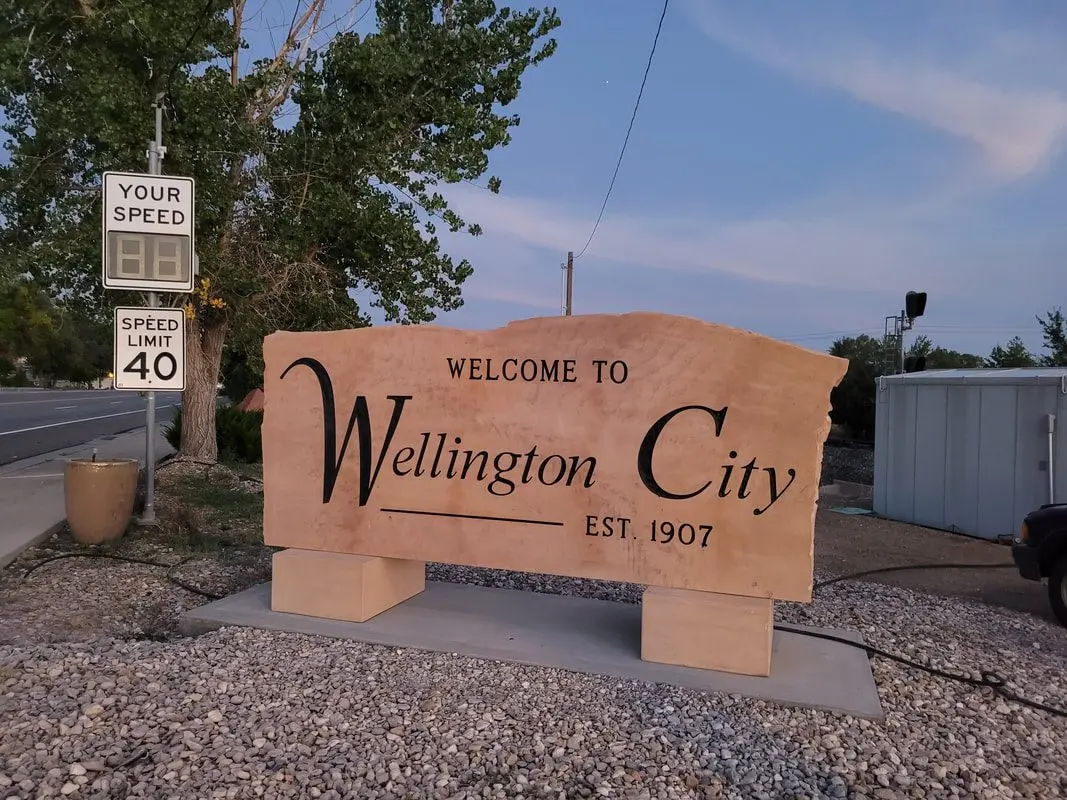
By Aidan Mortensen | KOAL News | Photo courtesy of Wellington City
The Wellington City Council convened for a special meeting regarding police on-call time. During the hourslong meeting, the consensus was reached that “on-call” wasn’t the proper term for the officer’s responsibilities, while also identifying the need for another officer to help prevent burnout and scheduling issues.
The meeting opened with Police Chief Tom Kosmack explaining that there is a misconception from the public regarding on-call pay, specifically that when officers are on-call, they are not actively working. “It is actually the wrong terminology,” explained Kosmack. “We’re on active duty. We’re just idle at the time. We’re not allowed to go freely.”
He continued, discussing the fact that with only three full-time officers and one reserve officer, taking time off by any officer creates scheduling issues.
“I’m not able to leave. I’m not able to respond from Fishlake or some place of my choosing,” said Sergeant Kevin Saccomano. “I’m obligated to be here. I’m expected to respond in a timely manner.”
He added,” I don’t want to pay somebody overtime either to sit at their house and do nothing right, but that is not what’s happening here.”
Citing the Fair Labor Standards Act, which mandates that if off-duty time is severely restricted – in this case, having officers required to be within a certain distance and in uniform – that it is considered paid hours.
In the Wellington City Code, this rule is shared. If an on – call status does not impede an employee’s normal activities, then it is not considered working hours. However, if the on-call status impedes the workers’ normal activities, it is considered working hours.
“The wording has been used as on-call time,” said Mayor Jack Clark. “But I don’t think it is a proper word from what you’ve presented.” Collectively, the council, mayor and department agreed that overtime was the proper way to describe the hours.
This issue opened a discussion into a broader problem facing the department: staffing. With 168 hours to cover and only three full-time officers, the department faces an additional 48 hours that must be covered throughout the week. Over the two-week period, this amount doubles to 96 hours that need coverage.
Typically, this time is filled with the help of a reserve officer and the Carbon County Sheriff’s Office. However, there remain approximately 20 hours per pay period that the trio of officers must cover. This amount also does not include vacation days or mandatory training that officers must attend.
To help alleviate this, the department is seeking permission to hire a fourth officer, an item that, with the current budget crisis the city is facing, is a challenge. “When we’re lacking people, it creates stress. And it creates biases, and it creates opinions,” said Saccomano.
The Sargent also shared problems the department faces when searching for applicants. “The people that I do know who have asked me about an application here or if we are hiring, they’re not encouraged to come work here. They read the tabloids. They read social media. They read the negative about the Wellington Police Department and they don’t want to attach their name to that.”
The department also shared concerns over the burnout the officers face while facing these issues and also sharing a solemn respect for duty: “The concern isn’t being compensated for it, we are always trying to do our job for Wellington. We do experience burnout, we really do, but it saves you money to have us do it because you’re getting a better service for less money.”
Another problem with recruitment facing the department is a limited applicant pool, which currently sits at three. Of the trio, only one is certified, which means the city will incur a longer delay and higher cost to hire the others. To circumvent this, Clark proposed a program in which applicants would pay for the Police Academy out of pocket and be reimbursed following graduation and the signing of a contract with the city.
Ultimately, the decision was made to change the wording from ‘on-call’ to ‘overtime’ and to work for budget solutions that would allow the hiring of a fourth officer.
“We do experience burnout. We’re not burned out yet, but we do need that officer,” said Saccomano. “I just want that to be heard.”
